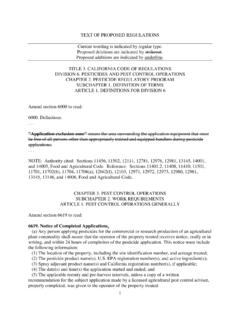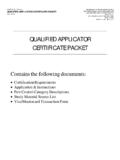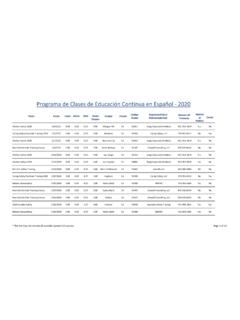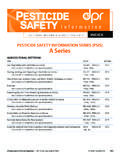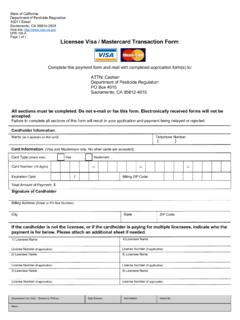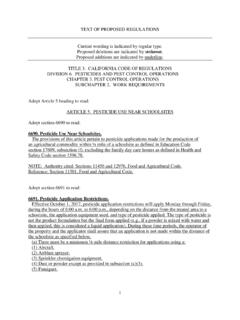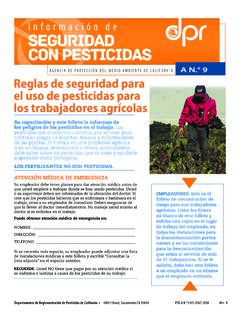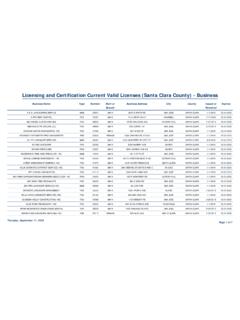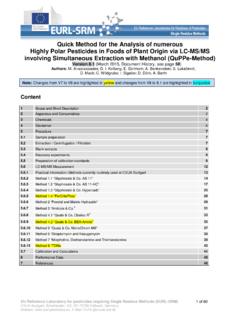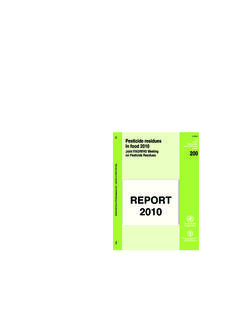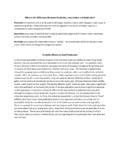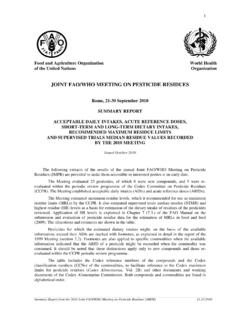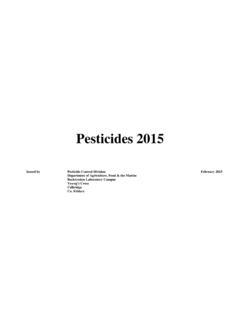Transcription of To all CE Course Sponsors, - cdpr.ca.gov
1 To all CE Course Sponsors, I am writing this letter to clarify the process DPR will be following in order to consistently evaluate andapprove Continuing Education (CE) courses. CE is offered to certified pest control applicators to allow them to renew their license for another certification period without the need for examination. DPR s review and approval of topics that qualify for recertification hours is critical. California Code of Regulations (CCR) Section 6512 and Food and Agricultural Code (FAC) section state in part that the courses or programs submitted for evaluation must be in the context of pest management and pesticides. FAC section and CCR 6512 gives specific examples of topics that can be approved (plant health, organic and sustainable practices, water and air monitoring and residue mitigation, etc., all in the context of pesticides and pest management).
2 Federal EPA regulations require States to certify anyone who will apply or supervise the use of Restricted Use Pesticides (RUPs) and ensure that these individuals remain competent in the safe use of pesticides in order to keep their certification. To comply with the federal requirement, California approves CE hours in pest management or pesticides to ensure competency in pesticide use is retained. As stated above, FAC (as amended by AB 2122) and CCR Section 6512(e) list topics that can be presented for CE credit, as long as the topics focus on pesticides and pest management. Many of the proposed courses we have recently reviewed discuss topics like plant health, sustainable practices, soil, plant and water sampling, plant nutrition, soil fertility, soil chemistry, irrigation systems, and then include a nominal reference that associates the topic with less need for pesticides or otherwise make a debatable connection to pesticides and pest management.
3 Staff must then decide whether the each individual Course ,or portion of the Course , meets the intent of State and Federal laws and regulations. CCR Section 6512(e) states in part that The Director may approve any Course or program submitted for evaluation. CCR 6512(h) also states The Director may request that more information about the content of the Course or program be submitted before making the determination as to whether the Course or program meets the criteria specified in (e), (f), and/or (g). If the information provided in the Course or program does not clearly show how the title/topic of the session will be discussed within the context of pesticides and pest management, staff will be asking for more information. We may ask for a detailed outline of the title/topic that is provided or approved by thespeaker. As a group evaluating these courses, we will be consistent in our Course evaluation process.
4 We will also be very conscientious about the requirement that DPR staff have 15 business days to approve or deny a Course once it is received. Please remember that if more information is needed, this can often extend/reset that timeline. DPR encourages sponsors to send in courses at least 30 days before they are to be presented. Please provide us with information that clearly states how the proposed Course topics focus on pesticidesand pest management, as this will raise fewer questions, and expedite the Course evaluation process. Sincerely, Department of Pesticide Regulation Pest Management and Licensing Branch
